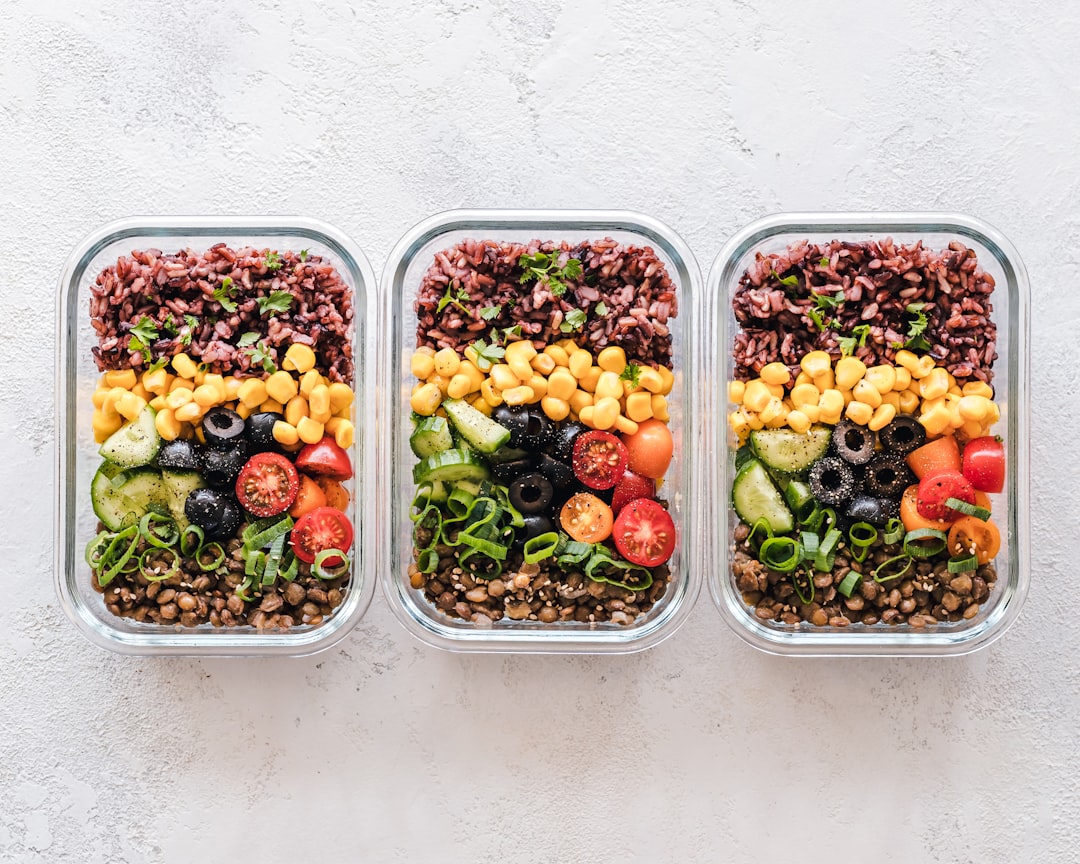Rapid Weight Loss: Quick and Effective Strategies
When you embark on a journey toward rapid weight loss, it’s essential to grasp what this entails. Rapid weight loss typically refers to losing a significant amount of weight in a short period, often defined as more than 1-2 pounds per week. While the prospect of shedding pounds quickly can be enticing, it’s crucial to understand the implications and potential risks involved.
Your body is a complex system, and losing weight too quickly can lead to muscle loss, nutritional deficiencies, and other health complications. Therefore, before diving into any rapid weight loss plan, you should educate yourself about the science behind weight loss and how your body responds to dietary changes. Moreover, rapid weight loss can sometimes lead to a cycle of yo-yo dieting, where you lose weight only to regain it later.
This cycle can be frustrating and demoralizing, making it essential for you to approach your weight loss journey with a mindset focused on sustainability rather than just quick fixes. Understanding the physiological changes that occur during rapid weight loss can help you make informed decisions about your health and well-being. You should consider factors such as your current weight, metabolic rate, and overall health status before committing to a rapid weight loss strategy.
Key Takeaways
- Rapid weight loss is typically defined as losing 1-2 pounds per week and should be approached with caution to avoid negative health consequences.
- Setting realistic goals for rapid weight loss involves considering factors such as current weight, desired weight, and timeframe, and consulting with a healthcare professional if necessary.
- Developing a healthy and balanced meal plan for rapid weight loss includes incorporating a variety of nutrient-dense foods and controlling portion sizes.
- Incorporating exercise into a rapid weight loss plan can help increase calorie expenditure and improve overall health, and should be tailored to individual fitness levels and preferences.
- Managing stress and getting adequate sleep are important for successful rapid weight loss, as stress and lack of sleep can negatively impact weight loss efforts.
Setting Realistic Goals for Rapid Weight Loss
Grounding Expectations in Reality
When it comes to achieving rapid weight loss results, setting realistic goals is crucial. While it’s tempting to aim for ambitious targets, such as losing 20 pounds in a month, it’s essential to set goals that are grounded in reality. A more achievable goal could be losing 5-10% of your body weight over a few weeks.
Maintaining Motivation through Milestones
This approach not only makes your goals more attainable but also helps you maintain motivation throughout the process. By breaking down your larger goal into smaller, manageable milestones, you can celebrate each achievement along the way, reinforcing your commitment to your overall health.
Focusing on Holistic Progress
It’s also important to set goals that encompass more than just the number on the scale. Consider focusing on improving your energy levels, enhancing your physical fitness, or adopting healthier eating habits. These broader objectives can provide you with a more holistic view of your progress and help you stay motivated even when the scale doesn’t reflect immediate results. Remember, weight loss is not just about aesthetics; it’s about fostering a healthier lifestyle that you can sustain long-term.
Developing a Healthy and Balanced Meal Plan
Creating a healthy and balanced meal plan is crucial for achieving rapid weight loss while ensuring that your body receives the nutrients it needs. Start by assessing your current eating habits and identifying areas for improvement. You may find that incorporating more whole foods—such as fruits, vegetables, lean proteins, and whole grains—can significantly enhance your diet.
These foods are not only nutrient-dense but also help keep you feeling full longer, reducing the likelihood of overeating. As you develop your meal plan, consider portion control and mindful eating practices. You might find it helpful to use smaller plates or bowls to help manage portion sizes visually.
Additionally, try to eat slowly and savor each bite; this practice can help you recognize when you’re full and prevent unnecessary snacking. Planning your meals in advance can also save you time and reduce the temptation to opt for unhealthy convenience foods when hunger strikes. By preparing healthy meals ahead of time, you set yourself up for success in sticking to your weight loss goals.
Incorporating Exercise into Your Rapid Weight Loss Plan
Exercise Type Duration Frequency Cardiovascular 30 minutes 5 times per week Strength Training 20-30 minutes 2-3 times per week Flexibility Exercises 10-15 minutes Every day Exercise plays a pivotal role in any weight loss strategy, especially when aiming for rapid results. You should aim to incorporate both cardiovascular and strength-training exercises into your routine. Cardiovascular activities—such as running, cycling, or swimming—can help you burn calories quickly and improve your overall cardiovascular health.
On the other hand, strength training is essential for building muscle mass, which can boost your metabolism and aid in long-term weight management. Finding an exercise routine that you enjoy is key to maintaining consistency. You might consider trying different activities until you discover what resonates with you.
Whether it’s joining a local fitness class, going for daily walks, or engaging in sports with friends, the goal is to make exercise a regular part of your life. Additionally, setting specific fitness goals—like completing a certain number of workouts per week or increasing your running distance—can provide motivation and keep you accountable as you work toward your weight loss objectives.
Managing Stress and Getting Adequate Sleep
Stress management and adequate sleep are often overlooked components of a successful weight loss plan. When you experience high levels of stress, your body produces cortisol, a hormone that can lead to increased appetite and cravings for unhealthy foods. To combat this, consider incorporating stress-reducing practices into your daily routine.
Techniques such as mindfulness meditation, yoga, or even simple breathing exercises can help lower stress levels and improve your overall well-being. Sleep is equally important in the context of weight loss. Lack of sleep can disrupt hormonal balance and lead to increased hunger and cravings.
Aim for 7-9 hours of quality sleep each night to support your weight loss efforts. Establishing a calming bedtime routine can help signal to your body that it’s time to wind down. This might include activities such as reading, taking a warm bath, or practicing relaxation techniques before bed.
By prioritizing both stress management and sleep hygiene, you create an environment conducive to achieving your rapid weight loss goals.
Monitoring Progress and Making Adjustments
Tracking Beyond the Scale
Keeping a journal can help you monitor your progress holistically. Document your weight, as well as your physical and emotional feelings throughout the process. This approach allows you to identify patterns and make necessary adjustments tailored to your needs.
Reassessing Your Plan
If you experience a plateau or slowdown in your progress, reassess your plan without hesitation. You may need to adjust your caloric intake or increase the intensity of your workouts to get back on track.
Staying Flexible and Motivated
Periodically evaluate your goals to ensure they remain relevant and motivating. By staying flexible and open to change, you’ll be better equipped to navigate challenges and continue on the path toward sustainable weight loss.
Seeking Professional Guidance and Support
While embarking on a rapid weight loss journey can be done independently, seeking professional guidance can provide invaluable support and expertise. Consider consulting with a registered dietitian or nutritionist who can help tailor a meal plan specifically for your needs and preferences. They can offer insights into portion sizes, food choices, and nutritional balance that align with your goals while ensuring that you’re meeting all necessary dietary requirements.
Additionally, joining a support group or working with a personal trainer can enhance your motivation and accountability. Surrounding yourself with like-minded individuals who share similar goals can create a sense of community that fosters encouragement and camaraderie. Whether through online forums or local meet-ups, connecting with others on their weight loss journeys can provide inspiration and practical tips that may resonate with your own experiences.
Maintaining Weight Loss and Preventing Regain
Achieving rapid weight loss is an impressive feat; however, maintaining that weight loss is often where many individuals struggle. To prevent regaining lost pounds, it’s crucial to adopt lifestyle changes that are sustainable in the long run. This means continuing to prioritize healthy eating habits and regular physical activity even after reaching your goal weight.
You might find it helpful to establish new routines that incorporate these practices seamlessly into your daily life. Additionally, be mindful of potential triggers that could lead to regaining weight—such as stress or changes in routine—and develop strategies to address them proactively. Regularly revisiting your goals and celebrating milestones can also reinforce positive behaviors and keep you motivated over time.
Remember that maintaining weight loss is an ongoing journey; by embracing this mindset and remaining committed to your health, you set yourself up for lasting success in achieving not just rapid weight loss but overall well-being as well.
The article discusses rapid weight loss strategies, emphasizing the importance of approaching quick results with caution due to potential health risks like muscle loss and nutritional deficiencies. It advocates for setting realistic, sustainable goals, incorporating balanced nutrition and exercise tailored to individual needs, and prioritizing stress management and sleep. Lastly, it highlights the importance of professional support and developing long-term habits to maintain results and prevent weight regain.
Jesse Wolford
As someone who has navigated significant personal health challenges, I deeply understand that sustainable weight loss isn’t just about rapid results—it’s about creating lasting, healthy habits that enhance your overall quality of life. At TriumphFit 360, we’re committed to guiding you beyond temporary fixes, empowering you with the knowledge, tools, and support to make lifelong positive changes. Remember, true success comes from consistency, realistic goal-setting, and nurturing your mental and physical well-being every step of the way. Let’s keep moving forward together, building strength, resilience, and lasting health—because you’re worth it.

”This article was written by Jesse Wolford, founder and awner of TriumphFit 360. TriumphFit 360 was Inspired by the personal journey of our founder, Jesse Wolford, who triumphed over cerebral palsy, and depression through dedication to fitness and wellness, TriumpFit 360 was born from a desire to share the healing and empowering benefits of adaptive fitness and nutrition.



